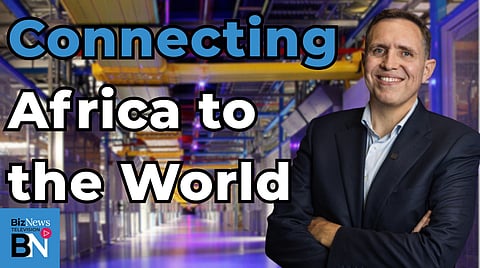Bruce Owen’s full circle: Global tech leader returns to root for Africa's digital future
African countries lag significantly behind G20 nations in digital infrastructure, a gap that threatens to deepen economic inequalities across the continent. Bruce Owen, the South African-born EMEA President of Equinix, one of the world’s largest digital infrastructure companies, is determined to change that. In an interview with BizNews, Owen reflects on his journey from backpacking through Europe to leading one of the UK’s most secure data centres. Now based in London, he oversees Equinix’s operations across Europe, the Middle East, and Africa, and is spearheading efforts to expand the company’s footprint on the continent. Equinix opened its first International Business Exchange (IBX) data centre in Germiston, South Africa, in October 2024, a strategic move to strengthen local connectivity and support digital transformation. “As a proud South African, there’s nothing I want more than to bring robust digital infrastructure to the continent,” Owen said. He also expressed renewed optimism about South Africa’s energy future, citing improved governance and a more stable outlook for the national grid.
Sign up for your early morning brew of the BizNews Insider to keep you up to speed with the content that matters. The newsletter will land in your inbox at 5:30am weekdays. Register here.
Support South Africa’s bastion of independent journalism, offering balanced insights on investments, business, and the political economy, by joining BizNews Premium. Register here.
If you prefer WhatsApp for updates, sign up to the BizNews channel here.
Watch here
Listen here

